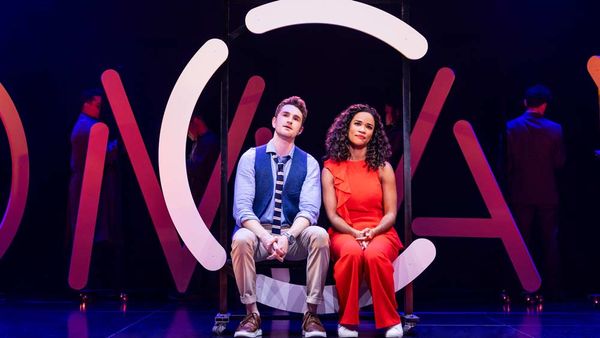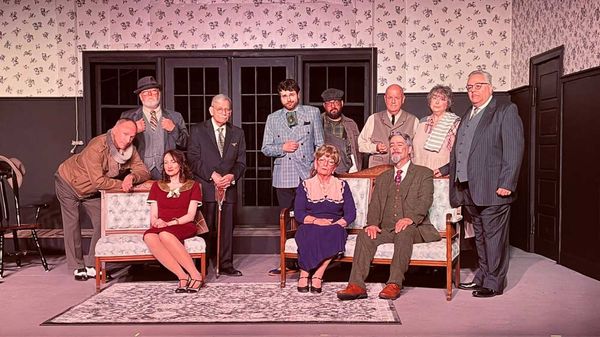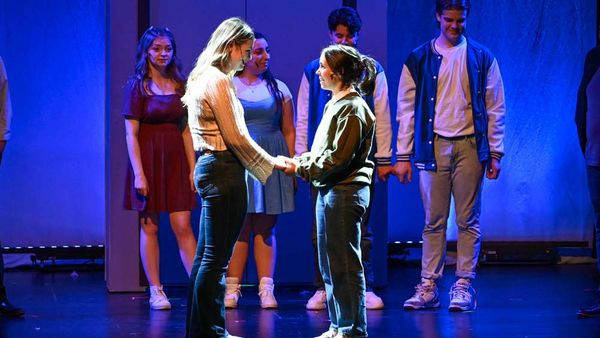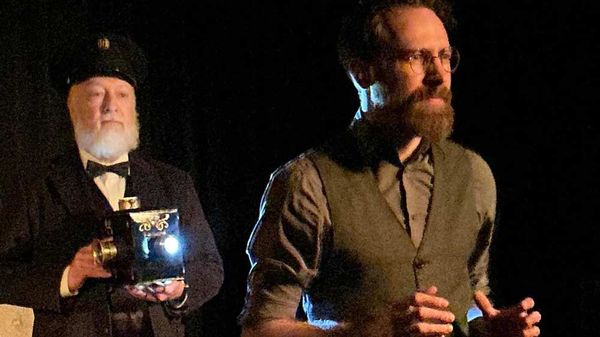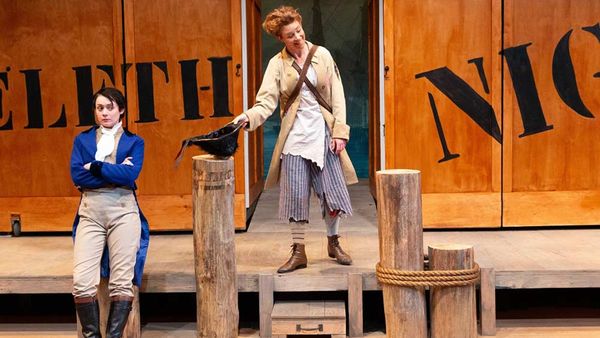September 20, 2011
Milk Milk Lemonade
Scott D. Taylor READ TIME: 3 MIN.
In a time when the issue of bullying has been brought to national attention, and when the "It Gets Better" campaign has garnered support from celebrities, politicians, and sports figures across the world, it is commendable that theater companies like the Washington Ensemble Theatre also carry the torch by producing shows that deal with these very timely themes.
Their current production of Joshua Conkel's "Milk Milk Lemonade" does just that. It tells the story of an effeminate 5th grade boy named Emory, (played by Tim Smith-Stewart) who lives on a farm in the Midwest, and who dreams of dancing his way to stardom one day by winning 1st place on the equivalent of TVs "America's Got Talent." From there, he hopes to go on to Broadway.
The problem is that Emory is being raised by his grandmother, played by Troy Mink, who wishes Emory would stop playing with dolls and practicing his dance routines with his chicken-friend named Linda (played by Kate Sumpter).
She wants Emory to be more like the little boy named Elliot (played by Noah Benezra), who lives on the property adjacent to their farm, and who likes to throw balls and burn things. Elliot also likes to bully Emory and get naked with him in the barn.
Bring in the "Lady in the Leotard," (played by Jennifer Pratt) who functions as the play's narrator and translator for Linda the Chicken, and we have all the elements for what could be an entertaining and pertinent night of theater.
Unfortunately, these elements never really come together very well, and the play, which was written by "an under 30 years old" playwright, ultimately shows the telltale signs of its immaturity.
The script lacks focus and fails to adequately explore some of the more substantive issues that it raises, such as the abandonment of Emory by his parents and his being raised by his grandmother who is also dying. It also ignores the plight of Emory's torturer-lover, Elliot, who lives in a dysfunctional home with an alcoholic father who presumably is abusive.
Instead, we get a stand-up routine by Linda the Chicken, who impersonates the 80s comedian, Andrew Dice Clay, and an inane conversation between Linda and a spider under the porch. Were I in high school or college, I might have been amused by such diversions, but as it is, I found them to be ridiculous and uninteresting.
On the other extreme, some of the conversations that took place between Emory and Elliot were quite mature in nature, and seemed implausible for characters who were supposed to be roughly 9 or 10 years old. And Elliot's proclivity for homosexual behavior also seemed hard to believe.
I know that many people like to insinuate that homophobes are actually closet cases, and maybe in some cases they are, but I find that such assertions are not quite accurate, and I think the play would have been more interesting if it had explored more deeply the causes of such bullying instead of suggesting that it results from repressed homosexual desire.
So, once I accepted that the play was going to remain on the surface of things, and not really delve into the more profound layers of the subjects it tries to explore, I was able to enjoy some moments, particularly the dance sequences that were interspersed throughout.
The acting was so-so, as was the direction by Montana von Fliss. There were a few times when the actors got too loud with their screaming, especially in such a small space, but overall, the individual performances were fine.
Smith-Stewart managed to effectively portray the 10-year old Emory, even though the actor himself was in his 20s. And Benezra also did a good job playing the bully, Elliot. Troy Mink, as Nana, also had some funny moments, although she came across more Southern than Midwestern. Sumpter and Pratt were also quite expressive in their respective roles.
All the same, the play did receive a standing ovation on Saturday night. I don't think it really deserved it, and I wondered if people stood up simply out of a sense of obligation in order to support the serious social causes that the play raises, rather than for the merits of the production itself. For me, the show had some potential, but was in desperate need of some more mature and focused revisions in the script.


